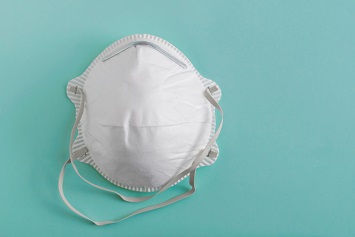Non-National Institute for Occupational Safety and Health (NIOSH)-approved filtering facepiece respirators (FFRs) made in China are no longer authorized for decontamination, the Food and Drug Administration (FDA) announced on June 6.
The FDA had granted emergency authorization for the reuse of decontaminated FFRs during the coronavirus disease 2019 (COVID-19) pandemic. COVID-19 is a respiratory illness caused by the SARS-CoV-2 virus. COVID-19 is currently widespread in most U.S. communities and considered a workplace hazard.
The FDA learned from NIOSH that authorized respirators manufactured in China may vary in their design and performance, according to the agency.
“While we continue to support efforts to meet the urgent need for respirators, we are also doing everything in our authority to ensure health care personnel are adequately protected,” Anand Shah, MD, FDA Deputy Commissioner for Medical and Scientific Affairs, said in an agency statement. “As part of those efforts, we are announcing that we have revised and reissued a number of EUAs (emergency use authorizations) to amend which respirators are authorized to be decontaminated,” Shah said.
Since the pandemic was first declared in March, the FDA and NIOSH, along with the Centers for Disease Control and Prevention (CDC) and Occupational Safety and Health Administration (OSHA), have authorized employers to take a number of actions in response to shortages of N95 FFRs used by emergency medical services and in healthcare facilities during the ongoing COVID-19 pandemic. These have included:
- Using surgical masks instead of FFRs during non-aerosol-generating procedures;
- Reusing FFRs throughout a shift;
- Using N95 respirators approved by NIOSH for use in other industries but not tested under FDA requirements for healthcare use;
- Using FFRs manufactured in Australia, Brazil, China, the European Union, Japan, Mexico, and South Korea but not NIOSH-approved; and
- Decontaminating FFRs with ultraviolet germicidal irradiation, vaporous hydrogen peroxide, or moist heat and allowing their reuse.
The decontaminated respirators are only intended for use when new FDA-cleared N95 respirators, NIOSH-approved N95 respirators, or other FDA-authorized respirators are not available.
The FDA reissued its EUAs to specify which respirators are appropriate for decontamination. The FDA continually updates its EUAs. The FDA concluded that cellulose-based FFRs and FFRs with exhalation valves are not appropriate for decontamination.
While NIOSH has not tested foreign-manufactured FFRs for approval, it has performed assessments of many using a modified version of NIOSH Standard Test Procedure (STP) TEB-APR-STP-0059. Respirator assessment results and test reports are available on NIOSH’s website.
Cal/OSHA Hazard Alert
The California Division of Occupational Safety and Health (Cal/OSHA) issued a hazard alert reminding hospitals in the state that under the Aerosol Transmissible Disease (ATD) standard, hospitals must provide powered air-purifying respirators (PAPRs) and other personal protective equipment for aerosol-generating procedures involving patients with suspected or confirmed cases of COVID-19.
Cal/OSHA issued the alert after receiving reports that some California hospitals do not have respirators immediately available for healthcare workers who must perform emergency aerosol-generating procedures involving suspected or confirmed COVID-19 patients.
Respirators for emergency care have allegedly been unavailable because of inventory control policies that did not ensure immediate on-demand availability of respirators for emergency procedures.
Cal/OSHA is investigating the allegations. The ATD standard is unique to California; there is no corresponding federal standard.

